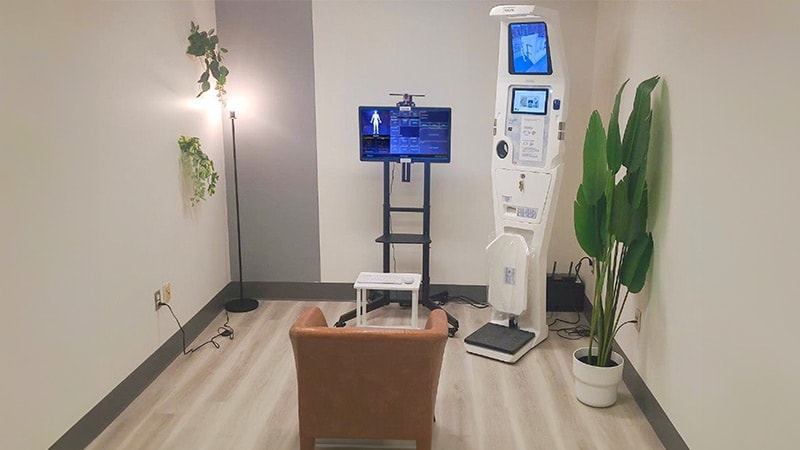Can Space Technology Help Canada's Healthcare System?
 Source: See here
Source: See hereTwo pilot projects based on space technology hold the promise of reducing emergency department (ED) visits and improving patient outcomes in Canada.
The first project, which was launched on November 25 by the Integrated University Health Center for Social Services (CIUSSS), brings a telemedicine hub to Pierrefonds Local Community Service Center, a community healthcare center in the Montreal area.
Originally designed to monitor the health of astronauts in space, the unit is an artificial intelligence–driven system with various devices that patients can use to check vital signs such as blood pressure, pulse, and blood oxygen level. It includes an interactive screen that provides patients with a comprehensive overview of their health, integrating information from a wearable device, medical devices, and an active emotion recognition vision sensor. The emotion recognition system operates in real time to enhance the decision support system.
The system has been adapted for clinical settings and can accommodate patients with disabilities and those in wheelchairs. Importantly, no footage is stored or saved, thus ensuring strict privacy compliance.
"We were developing this for our own needs for space, and they [CIUSSS] were looking for a way to cut into their waiting lists," said David Saint-Jacques, an astronaut with the Canadian Space Agency, in The Globe and Mail. "What we want is what they want."
Many of the people working on the technology at Baüne have similar stories about people close to them who might have benefited from preventive health interventions, she said. "Our healthcare system is currently very reactive. Implementing preventive measures with technology won't solve the whole problem, but it's a start."
Comments
Post a Comment